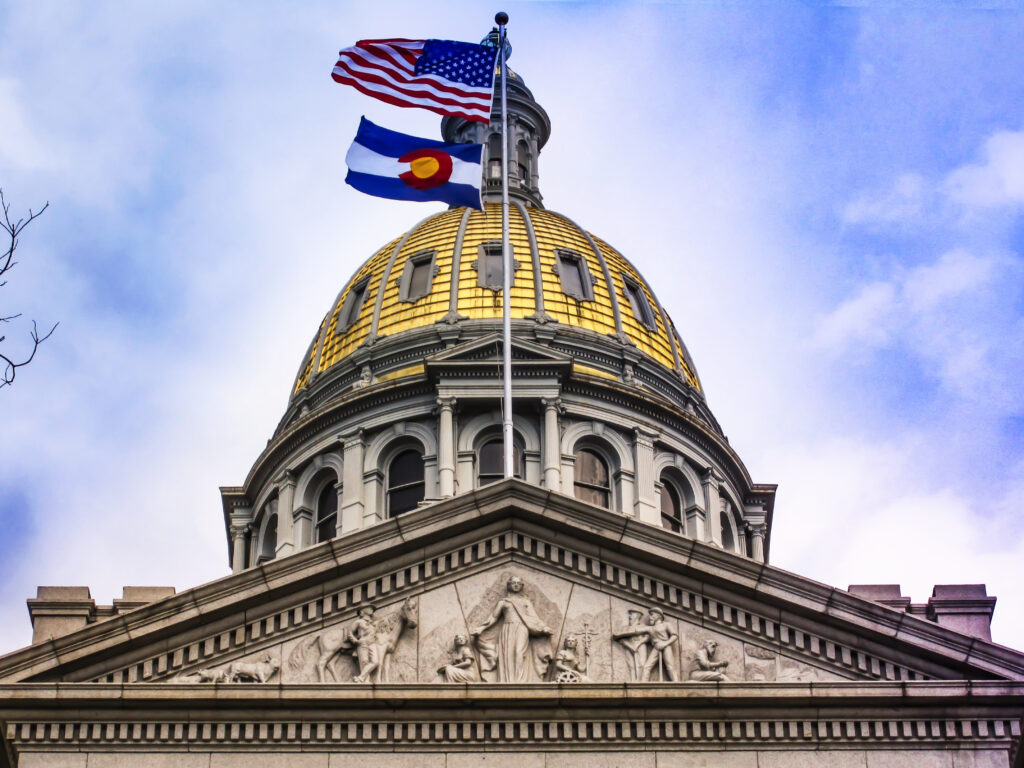Supreme Court to Decide Whether to Hear Three Cases Involving Pregnancy Help Centers
As early as September 25, 2017 the U.S. Supreme Court could decide whether to hear three cases involving pregnancy help centers (PHCs).
Each of the cases involves a 2015 California law called the Reproductive FACT Act (the “Act”).
According to the petition for certiorari in one of the cases, “California law compels certain licensed facilities that offer pregnancy-related services to notify all clients, no matter the reason for their visit, that they might be eligible for free or low-cost abortions, even if these facilities do not provide abortion services, and even if those facilities object to abortion.”
The petition for certiorari in one of the other cases explains that the Act “forces licensed pro-life medical centers to post notices informing women how to contact the State at a particular phone number for information on how to obtain state-funded abortions . . . Those calling the provided number,” the petition explains, “will be referred to Medi-Cal and Family Planning, Access, Care, and Treatment Program (‘PACT’) providers, including private abortion providers such as Planned Parenthood.”
Information about the Three Cases
The three cases include:
- National Institute of Family and Life Advocates v. Becerra (No. 16-1140). Counsel on the petition for certiorari in this case include attorneys from Alliance Defending Freedom as well as John Eastman from the Center for Constitutional Jurisprudence at the Claremont Institute.
The Charlotte Lozier Institute submitted an amicus brief in support of the petition in this case. Other amici supporting the petition in this case include the Cato Institute, which submitted a brief by counsel including the Cato scholar Ilya Shapiro.
- Livingwell Medical Clinic, Inc. v. Becerra (No. 16-1153). Counsel on the petition for certiorari in this case include Jay Sekulow and other attorneys from the American Center for Law & Justice.
- A Woman’s Friend Pregnancy Resource Clinic v. Becerra (No. 16-1146). Counsel on the petition for certiorari in this case include two attorneys from the Pacific Justice Institute in Sacramento, California.
Overview of the Issues
According to the petition in Livingwell Medical Clinic, “The Act applies to two different types of clinics that offer pregnancy services: licensed and unlicensed covered facilities.”
Licensed Covered Facilities
If a PHC is a licensed covered facility under the Act, it “must disseminate the following language to its clients,” as set forth in the Livingwell petition (which added the emphasis as follows):
California has public programs that provide immediate free or low-cost access to comprehensive family planning services (including all FDA-approved methods of contraception), prenatal care, and abortion for eligible women. To determine whether you qualify, contact the county social services office at [insert the telephone number].
The petition in the NIFLA case provides the following explanation. “The Act forces licensed pro-life medical centers to post notices informing women how to contact the State at a particular phone number for information on how to obtain state-funded abortions, directly contradicting the centers’ pro-life message. Those calling the provided number,” the petition explains, “will be referred to Medi-Cal and Family Planning, Access, Care, and Treatment Program (‘PACT’) providers, including private abortion providers such as Planned Parenthood.”
Unlicensed Covered Facilities
The Act also burdens PHCs considered to be unlicensed covered facilities under the Act.
According to the petition in the NIFLA case, the Act “also forces non-medical, unlicensed pro-life organizations to give extensive disclaimers that they are not a licensed medical facility in large font and in as many as 13 languages to clients on site as well as in their ads, both print and digital, including on their own Internet websites.”
The petition argues that “[t]his compelled speech requirement drowns out the centers’ pro-life messages and discourages them from speaking through advertisements because California’s voluminous required statements make ads cost prohibitive.”
PHCs Make Enormous Social Contributions
As previously detailed here, the Lozier amicus brief supporting the petition in NIFLA v. Becerra provides an extensive overview of the important social contributions PHCs make.
Lozier’s brief draws heavily on research prepared by the Family Research Council that estimates the accomplishments of nearly 2,000 PHCs using data collected by centers affiliated with three national PHC networks, Care Net, Heartbeat International, and the National Institute of Family and Life Advocates (NIFLA).
Lozier sets out findings on PHC contributions, as reported in FRC’s study, including:
- “In 2010, [PHCs] served over 2.3 million people with pregnancy assistance, abstinence counseling and education, community outreach programs and referrals, and public health linkages.”
- “A conservative estimate of community cost savings for these services during 2010 is over $100 million.”
- “In addition to specific cost savings, pregnancy centers drew on the help of 71,000 volunteers who performed an estimated 5,705,000 uncompensated hours of work in 2010.”
Pro-Life PHCs Should Not Be Forced to Refer for Abortion
In its amicus brief Lozier argues that forcing pro-life volunteers and help centers to refer for abortion undermines their mission and the values that inspire them to serve mothers and children. As the brief states,
For the people who are employed by, donate to, or volunteer with local PHCs, the work is truly a labor of love. PHCs are devoted to loving both mothers and children through practical action. In many if not most cases, this devotion springs from deeply held religious or moral commitments about the value of all human life and the obligation to serve those in society who are suffering, in crisis, or at disadvantage. Forcing PHCs to refer for abortion undermines their mission and burdens the principles that inspire them to serve vulnerable mothers and children.
Whatever interest California might assert in providing information about the availability of abortion services, it cannot be denied that, as this Court has stated, abortion is a “unique act,” Planned Parenthood of Se. Pennsylvania v. Casey, 505 U.S. 833, 852 (1992), and is “inherently different from other medical procedures, because no other procedure involves the purposeful termination of a potential life,” Harris v. McRae, 448 U.S. 297, 325 (1980). In the words of one federal court, “[t]he rationality of distinguishing between abortion services and other medical services when regulating physicians or women’s healthcare has long been acknowledged by Supreme Court precedent.” Greenville Women’s Clinic v. Bryant, 222 F.3d 157, 173 (4th Cir. 2000). Nowhere is the “unique” and “inherently different” nature of abortion more deeply felt than in forcing pro-life individuals and institutions to promote or participate in it.
The Supreme Court is scheduled to consider the petitions in the three cases at the Court’s conference on Monday, September 25, 2017.
Thomas M. Messner is a Senior Fellow in Legal Policy at the Charlotte Lozier Institute.





















